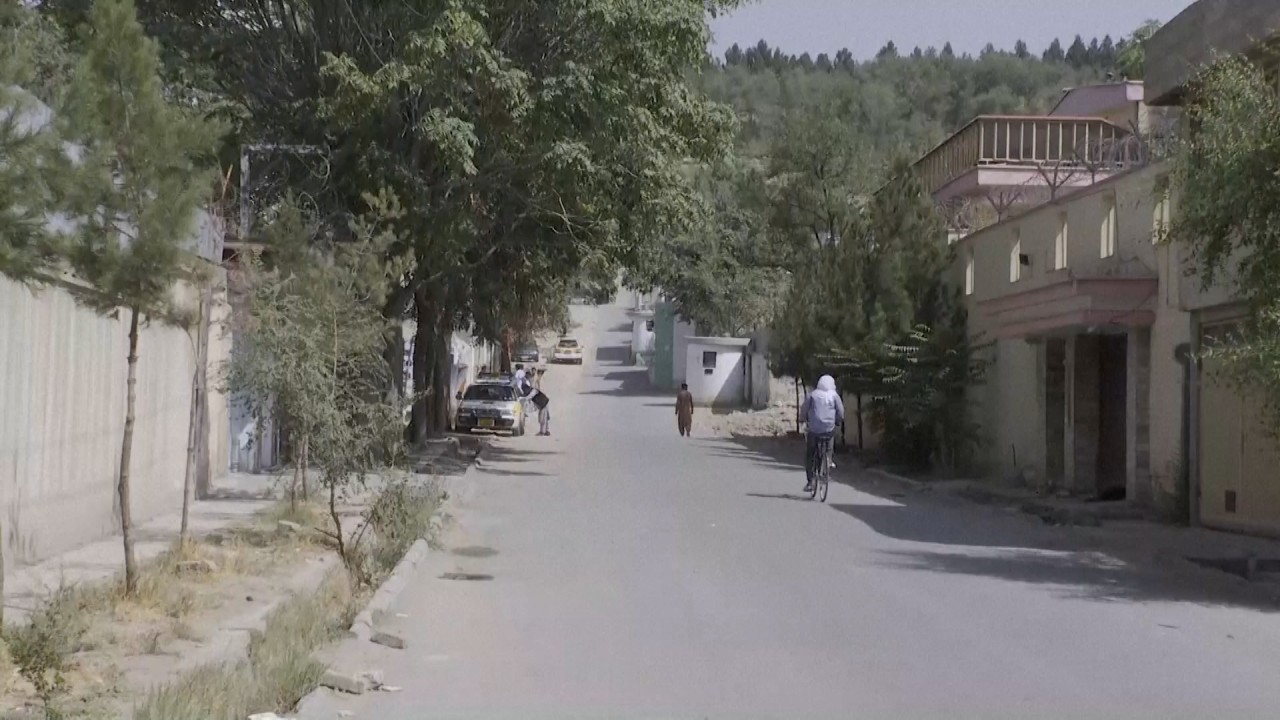
Afghanistan seen bringing ‘Global Britain’ down to size
- UK government accused of complacency over Afghanistan retreat
- Britain wants to focus attention on the Indo-Pacific region
The Taliban’s return to power in Afghanistan has caused collateral damage to the UK and its ambitions for a “Global Britain”, politicians and analysts say.
The UK, like its main ally United States, has been left stunned by the speed in which Taliban forces took control of Afghanistan and the fall of Kabul’s Western-backed government. It sparked a refugee exodus and chaotic evacuation operation by foreign powers, including Britain.
The Taliban’s march towards Kabul also came as both Prime Minister Boris Johnson and Foreign Secretary Dominic Raab were taking a holiday at the same time.
“What does it say about us as a country?” May, Johnson’s predecessor, told a packed House of Commons on Wednesday.
“What does it say about Nato, that we are entirely dependent on a unilateral decision taken by the US.
“I’m afraid this has been a major setback for British foreign policy. We boast about ‘Global Britain’, but where is ‘Global Britain’ on the streets of Kabul?”
Some 20,000 Afghans would be welcomed to the UK in coming years, the UK government said. Evacuations from Kabul continued on Thursday as Afghanistan marked Independence Day, which commemorates the 1919 treaty that ended British rule there. Britain’s last evacuation flight could leave in less than five days under an accelerated timetable for withdrawal, The Times reported.
“It puts into perspective some of the ambitions and the exceptionalist rhetoric of the integrated review,” said Lord Peter Ricketts, a retired senior UK diplomat and the UK’s first National Security Adviser during David Cameron’s premiership.

01:05
Upscale Kabul neighbourhood nearly deserted after Taliban takes control
He was referring to foreign policy and defence strategies published earlier this year: “Global Britain in a Competitive Age” and “Defence in a Competitive Age”.
The policy documents were touted as the most radical assessment of the UK’s place in the world since the end of the Cold War.
Johnson announced on July 8 that most British troops had pulled out of the country. This week Johnson said he had little choice but to follow Biden’s decision, and that a continued Afghanistan mission would not be possible “without American might”.
Events in Afghanistan “were a pretty cold shower to those who thought Britain would be operating as one of the great powers of the world after Brexit,” Ricketts said.
He made his comments in a podcast by the Institute for Government, a UK independent think tank.
“It’s clear the British government has been left floundering because it wasn’t trusted to be in on what the US was doing,” said economist George Magnus, an associate at the China Centre at Oxford University. “It leaves the UK alone and in isolation.”
The UK government has been also on the defensive as Raab, the British foreign minister, faced opposition calls to resign for not interrupting his “luxury” holiday in Greece to make a call to help translators flee Afghanistan.
The phone call was delegated to a junior minister, Zac Goldsmith, but a call reportedly did not immediately happen.
Johnson attempted to head for a holiday last Saturday only to return as the Taliban closed in on the Afghan capital. Raab also made the decision to return on Sunday, the day Kabul fell, arriving back in the UK on Monday morning.
Defence Secretary Ben Wallace argued the suggested phone call from Raab to his Afghan counterpart would not have made “any difference whatsoever” given the Afghan government was “melting away quicker than ice”.
Afghanistan veteran and Conservative MP Tom Tugendhat, chair of the UK parliament’s influential Foreign Affairs Select Committee, spoke of anger felt by veterans at the “abandonment” of the country to the Taliban.
“I’ve watched good men go into the earth, taking with them a part of me, a part of all of us,” he told the House of Commons.

More than 450 UK armed forces personnel were killed during the almost 20-year Afghanistan war.
The West’s chaotic exit from Afghanistan came as Britain redirects its focus to the Indo-Pacific.
Britain’s HMS Queen Elizabeth aircraft carrier, spearheading the country’s largest peacetime deployment in a generation, was docked in Guam.
The carrier was, as Conservative MP Tobias Ellwood and Afghanistan veteran put it, in “the wrong place at the wrong time”.
Britain’s pivot to Asia includes forging closer economic ties with countries like Japan and Anglosphere countries like Canada and Australia.
Accession talks have begun for the UK to join the 11-nation Comprehensive and Progressive Agreement for Trans-Pacific Partnership, that includes the above as well as a number of Southeast Asian countries like Malaysia and Singapore.
Magnus said CPTPP accession would not be enough to restore Britain’s reputation.
It will need an extra special close relationship with one of the big three economies, the US, China and the EU, to survive and thrive.
A much-touted trade pact with the US during Donald Trump’s presidency has hardly been mentioned since Biden came into office.
That leaves the EU.
“It wouldn’t surprise me if over the next decade Britain looked for a more formal relationship with the EU in terms of foreign policy,” said Magnus. But first, he said, the Johnson government would have to go.
Additional reporting by Reuters and Associated Press

